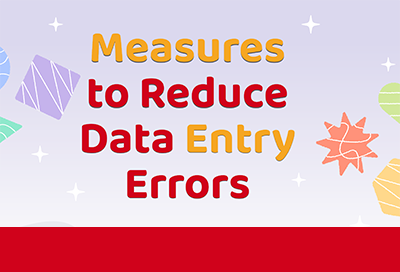Manual data entry involves many challenges such as high error rate, slow turnaround time, poor quality checks, and more. Errors can occur due to reasons ranging from inadequate training of data entry professionals to human error, illegible handwritten forms, and misinterpretation of comments.
Some common types of data entry errors are entering wrong data, disorganization, entering incorrect records, unintentional mistype, entering right data in the wrong column or field, entering data information multiple times, entering improper payment amounts, incorrect phone numbers, avoiding variables in records, and misunderstanding numbers with any letters. To avoid mundane and repetitive typing tasks, many businesses outsource the task to experienced data entry companies.
Data entry processes can be improved using automation tools, which help save time and ensure high data integrity. Many data entry firms also provide robotic process automation services to automate business processes including data entry.
Check out the infographic below





